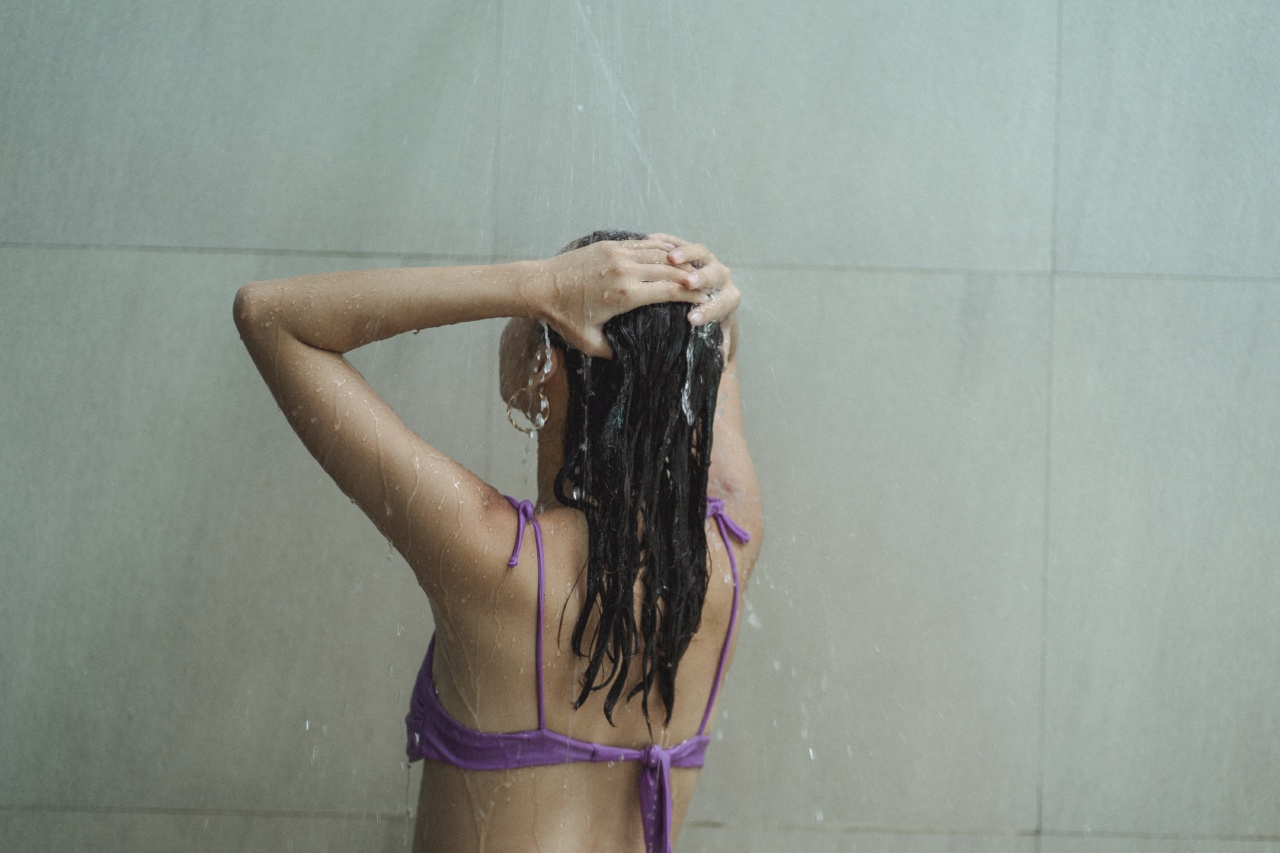When it comes to personal hygiene, one of the most common practices is washing our hair. We are all familiar with the process of shampooing, conditioning, and rinsing to keep our hair clean and fresh.
However, have you ever wondered if it is possible to have clean hair without washing? Is there any way to maintain fresh and odor-free hair without the use of water and traditional hair care products? In this article, we will explore various methods and alternatives to washing your hair and discuss their effectiveness.
The Science of Hair: Understanding the Basics
Before we dive into alternative methods, let’s first understand the science behind hair and why washing is essential. Hair is primarily composed of a protein called keratin, which is responsible for its strength and structure.
Each hair shaft consists of three layers: the medulla, the cortex, and the cuticle. The medulla is the innermost layer, followed by the cortex, which contains most of the hair’s pigment. Lastly, the cuticle acts as a protective barrier for the hair.
The sebaceous glands in our scalp produce sebum, an oily substance that moisturizes and conditions our hair. However, excessive sebum production can lead to greasy and oily hair.
Additionally, our hair can accumulate dirt, pollution, sweat, and other impurities over time, making it look dull and dirty.
While washing our hair with water and shampoo helps remove these impurities, it can also strip away the natural oils produced by our scalp.
This can lead to dry, frizzy hair and an overproduction of sebum as our scalp tries to compensate for the loss of oils.
Alternatives to Washing: Is it Possible?
Now that we have a basic understanding of hair science, let’s explore some alternative methods and techniques that claim to clean your hair effectively without traditional washing:.
1. Dry Shampoo
Dry shampoo is a popular option for those looking to skip traditional washing. It comes in the form of a spray or powder and is designed to absorb excess oil and refresh your hair.
Dry shampoo typically contains ingredients such as starch, silica, or clays that help absorb the oils from the scalp. While dry shampoo can be a convenient option for quick touch-ups, it is not a substitute for proper hair washing. It primarily masks the appearance of oily hair and does not remove dirt or other impurities.
2. Co-Washing
Co-washing, short for “conditioner washing,” involves using only conditioner to wash your hair instead of shampoo. Proponents of co-washing claim that it helps maintain the hair’s natural oils while still cleansing the scalp.
Conditioners provide moisture and hydration to the hair, making it appear healthier and shinier. However, co-washing may not effectively remove dirt, sweat, and other impurities from the hair and scalp. It is best suited for individuals with dry or curly hair types that do not get oily quickly.
3. Apple Cider Vinegar Rinse
Apple cider vinegar (ACV) has gained popularity as a natural hair care remedy. It is believed to restore the pH balance of the scalp, remove product buildup, and add shine to the hair.
To use ACV as a rinse, mix one part of ACV with three parts of water and apply it to your hair after shampooing. Allow it to sit for a few minutes before rinsing it out. While ACV can provide some benefits, it is not a substitute for regular shampooing as it does not effectively cleanse the hair.
4. Baking Soda Treatment
Baking soda is another common household ingredient that some people use as an alternative to washing their hair. It is believed to help remove product buildup and balance the scalp’s pH levels.
However, using baking soda regularly can disrupt the natural pH of the hair, causing dryness and potential damage. It is best to use baking soda treatments sparingly and follow up with a proper shampoo and conditioner.
5. Scalp Massages
Scalp massages are not a direct method of cleaning the hair but can help improve the overall health of your scalp. Massaging the scalp stimulates blood flow, improves circulation, and helps distribute natural oils from the scalp to the hair shafts.
While scalp massages can provide temporary relief from greasiness, they do not replace the need for washing your hair.
6. Herbal Rinses
Herbal rinses involve using infusions of herbs and plants to cleanse and condition the hair. Common herbs used for rinses include rosemary, chamomile, lavender, and nettle. Proponents claim that these rinses help maintain hair health and add shine.
However, herbal rinses alone may not effectively remove dirt and oils from the scalp and must be used in conjunction with proper washing.
7. Protective Hairstyles
One way to minimize the need for frequent washing is by wearing protective hairstyles. Styles such as braids, twists, and updos can help prevent your hair from being exposed to environmental pollutants and daily manipulation.
While protective hairstyles can extend the time between washes, they do not eliminate the need for periodic cleansing.
8. Natural Fiber Towel or T-Shirt Drying
When drying your hair, using a natural fiber towel or a t-shirt instead of a regular bath towel can help reduce frizz and breakage. The rough texture of bath towels can rough up the hair cuticles, leading to damage and increased frizz.
Natural fiber towels and t-shirts absorb moisture gently without causing unnecessary friction.
9. Choosing Hair Products Wisely
The type of hair products you use can also impact the cleanliness and appearance of your hair. Opt for lightweight, non-stripping formulas that do not weigh your hair down or cause excessive product buildup.
Look for sulfate-free shampoos and conditioners that are gentle on the hair and scalp.
10. Regular Brushing
Regular brushing of your hair helps distribute natural oils from the scalp to the hair strands, providing nourishment and shine. It also helps remove loose hairs and tangles that can make your hair look dirty and unruly.
Brushing alone, however, cannot effectively clean the hair and should be complemented with proper washing as needed.
Conclusion
While there are various alternative methods and techniques to clean your hair without traditional washing, it is important to recognize their limitations.
These techniques may help temporarily refresh your hair or maintain its natural oils, but they cannot fully remove dirt, sweat, and other impurities. Proper washing with water, shampoo, and conditioner remains the most effective way to keep your hair clean and healthy.































